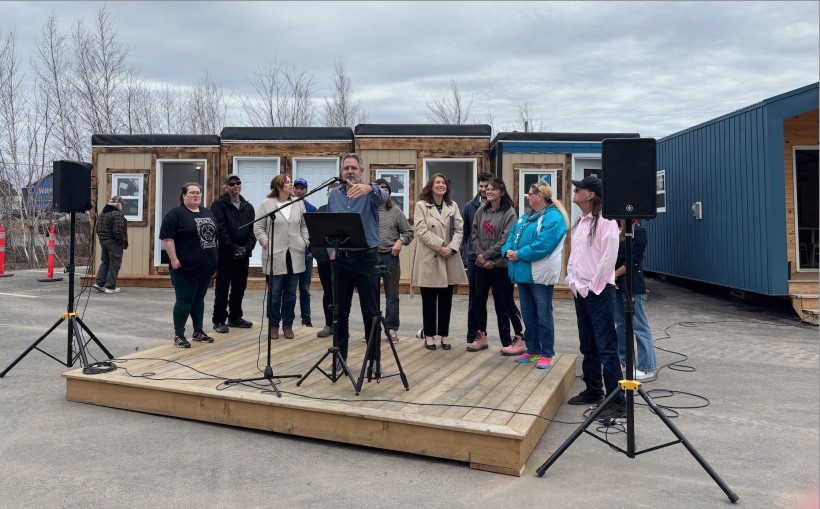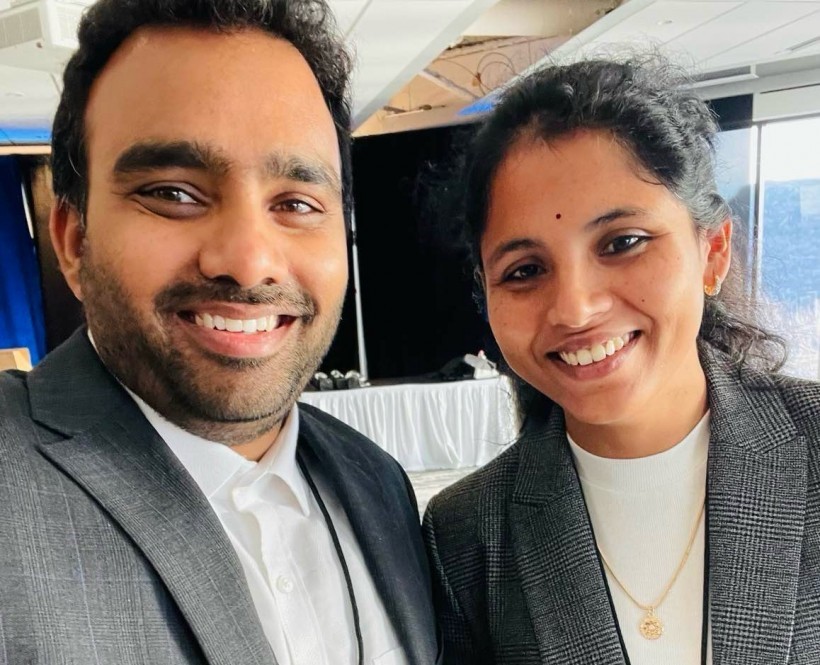Project Zero, a new initiative working to solve homelessness in Fredericton, has been launched by the charity 12 Neighbours, the creation of former Radian6 co-founder Marcel LeBrun.
Marcel LeBrun was co-founder and CEO of social media monitoring venture Radian6. The company was bought by Salesforce for US$276 million in cash and US$50 million in stock in 2011. The deal was a transformative one for the Atlantic Canadian startup ecosystem, drawing previously unseen levels of investment and attention to the region’s young companies.
Since then, Lebrun has made tackling homelessness a focus of his energies and resources. 12 Neighbours is already known for its tiny homes community, which comprises 96 tiny homes in Fredericton.
The new idea, Project Zero, is focused on building Neighbourly Homes, a rapidly deployable, transitional housing model. Neighbourly Homes communities will be arranged in small, private courtyards, each with 14 individual sleeping units, shared bathrooms, showers, and 24/7 admin facilities. Built warmly for Canadian winters, the Neighbourly Homes factory can produce one unit per day at a cost as low as $7,500.
The new housing communities are intended to create especially low-barrier housing options for the nearly 200 individuals still experiencing homelessness and living unsheltered in wooded areas across Fredericton -- and many more throughout the Maritimes, needing appropriately matched housing, the group said in a press release.
“Supportive housing is the number one evidence-based investment that communities can make to reduce crime, alleviate healthcare pressures, reduce homelessness, and create long-term taxpayer savings,” said LeBrun in the release. “This proven solution pays for itself and benefits everyone."
12 Neighbours will begin construction immediately while also working with community partners and government to identify appropriate temporary locations and establish operational funding, the group said.
"Housing is life or death," said Mike Bindas, who was previously homeless. "My tent caught on fire here in Fredericton last winter, which was a close call for me. Housing is not just shelter—it’s safety, dignity, and a chance to rebuild your life. I'm thankful for my home at 12 Neighbours, and I look forward to seeing everyone have a safe housing option."
Richard “Mayor Al” Smith added: "No one should have to resort to living in the woods in winter. If my wife and I had something like this when we were homeless for five years, we would have avoided many health issues and returned to work much sooner. … I’d like to see these all across Canada because everyone should have a warm place."
The new initiative is launching with a donation of $1.5 million from Le Brun, his wife Sheila, and Dave and Paula O’Leary of Shift Auto Group. Local businesses and residents can make a tax-receipted donation of any size here.
In 2023, LeBrun, and Radian 6 Chief Marketing Officer, David Alston, spoke at Entrevestor Live regarding their entrepreneurial experience.
The entrepreneurs advised founders to think big. The pair said founders of East Coast startups too often try to “start small,” focusing their business development efforts on local markets in hopes of dialling in their product offerings before targeting more profitable sales opportunities.
“Go after the most lucrative, most important market, wherever that is,” LeBrun said at the time. “It’s not about having an operation in every country, it’s about being in the places where the market leadership will be declared.
“What we see a lot of times is people go (to market), and their first few customers are the friendly customers. They had a connection here or a connection there. They have this kind of fear, saying, ‘I’m not sure I want to go there yet because I’m not ready.’ But if you can go there early, just go there honestly, and not pretentiously.”
Founded by LeBrun, Chris Newton and Chris Ramsey in 2006, Radian6 was at one time the preeminent social media monitoring company in the world. Its technology tracked hundreds of millions of conversations every day across Facebook, Twitter, YouTube, blogs and online communities, and it was used by half of the Fortune 500, including Dell, GE, Kodak, Molson Coors, Pepsico, and UPS. The company was profitable by 2009 and employed about 350 people at the time of the Salesforce buyout.
The exit became a windfall for many Atlantic Canadian investors. Crucially for the ecosystem, the New Brunswick Innovation Foundation turned two separate investments totalling $326,973 into a return of $9.25 million, which it subsequently used to back other startups.









